8. Adrien Brody as Wladyslaw Szpilman (The Pianist, 2002)
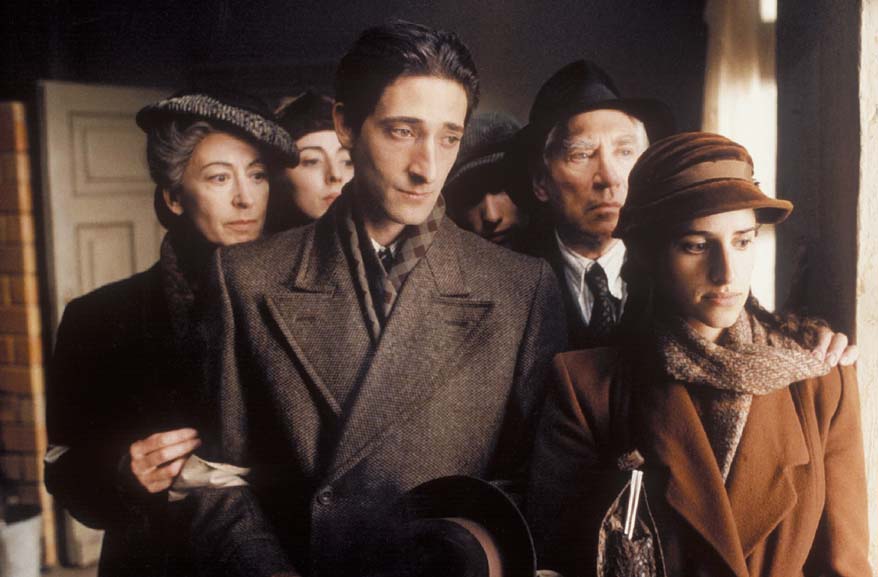
Adrien Brody’s performance as the tortured and lonely Jewish-German pianist trapped in the holocaust marks the youngest performance by an actor to win lead at 28 years’ old and is one of the most compelling and moving stories whose focus point is a completely internalized character.
One of the finest under-actors of the modern generation Brody is also an extremely dedicated method actor and went through tremendous strains to deliver a performance as harrowing for himself as it would have been for Szpilman himself. The film begins during the initialization of Hitler’s alienation of the Jews and within forty minutes the film has shown audiences- through Szpilman’s family how Nazi German removed right after human right from Jewish people and thrust them into inhumane slaughter and slavery.
Szpilman becomes the sole human being left inside the ghetto that had been his home and he wanders through its empty, corpse filled streets tears streaming down his face but no words leave his mouth- for what can he say? What do we feel?
On purpose or not Polanski’s directorial decision for the films pace to be far faster than any other film to study the holocaust created a level of apathy to the plight within the film, however Adrien’s performance tore that apathy away and this all but one man show of a film became so focused on Szpilman that we could not help but echo his terror and helplessness.
Adrien Brody, to further understand Szpilman sold all his possessions and moved alone to Europe, he played piano with such rigour that until the film was done he played four hours a day every day and developed insomnia in the making of the film, suffering numerous panic attacks and subjected himself to numerous harrowing experiences. Regardless of it this was worth the performance deliver, we became likeminded to Szpilman and suffering alongside him until the end.
7. Dustin Hoffman as Ted Kramer (Kramer vs Kramer, 1979)
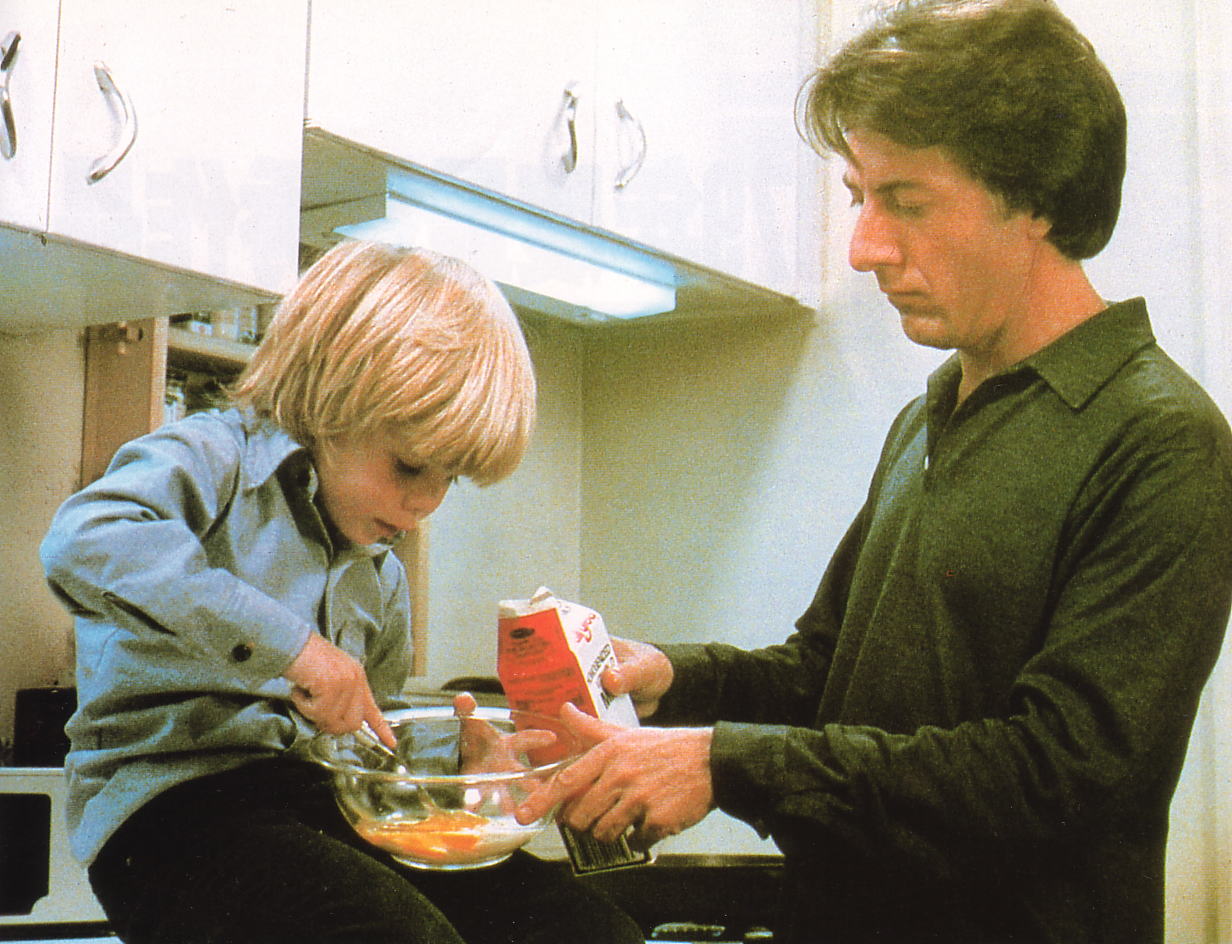
Ted Kramer is an account executive, after coming home from the win of his career his wife (Meryl Streep) tells him she is leaving. Kramer lets go of his job to care for their son Billy (Justin Henry) and she returns later demanding sole custody.
A film that plays on audience heartstrings from the very beginning it brought the struggle of parents, family and divorce into blinding light as this extremely melancholy and emotionally charged film and all audiences can do is watch as parent claws into parent in a desperate attempt to stay with the child they love.
The film doesn’t play favourites, neither Dustin or Meryl are seen as the true parent (although audiences certainly side with the father at first) we are shown the complexities of each in one of the most powerful tour de’ force performances in cinema.
The film is not driven by one singular performance, with both actor and actress taking home the award respectively but Hoffman is particularly outstanding because of just how truly human he is. It is easy to see that Ted Kramer is a person, he has positives and negatives but he is kind as much as he can be irrational.
Hoffman understood his character was not a quirky man, not a suave one and he did not try to create presence where there was not needed he was simply a person. There was not a scene he brought the film down but there wasn’t a scene where he over performed to compensate for another Hoffman was both the main feature of the film and the perfect complement to scenes where he was not the focus.
Ted Kramer was human Hoffman understood this and gave one his most emotionally turbulent performance- which is why despite his excellence in Rain-man Ted Kramer is his strongest performance to date.
6. Sean Penn as Jimmy Markum (Mystic River, 2003)
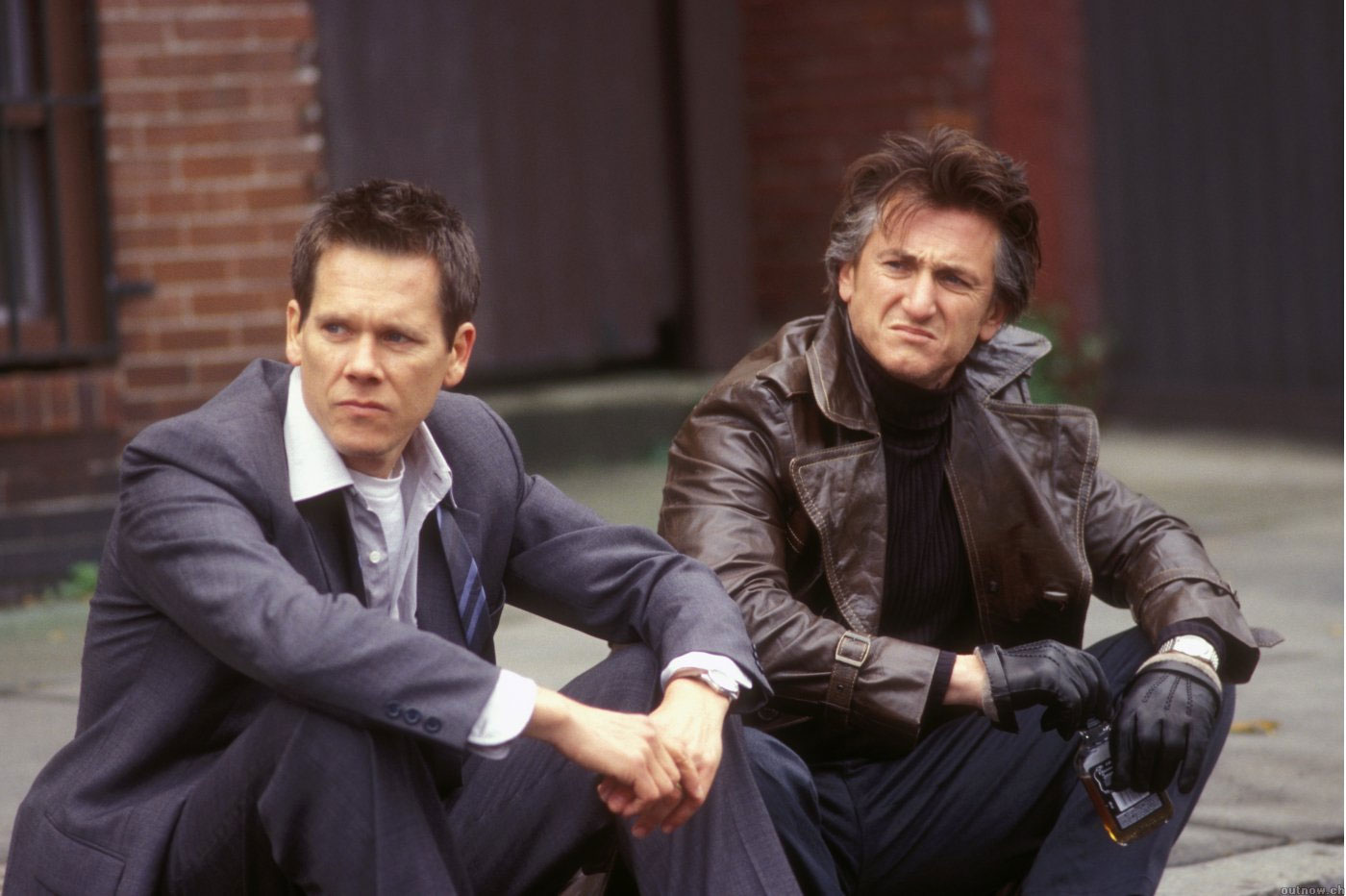
Whether you admire him for his philanthropy or loathe him for his arrogance, Sean Penn is one of the most emotionally powerful and versatile actors in film today and although not his most famous performance, Jimmy Markum is his most moving.
Three boys are playing in the street, it’s in the Styx and a ‘cop car’ pulls up to investigate. After discovering that the boys are drawing in the cement one of them is taken by the ‘police officers’ and driven off with. That boy returns four days later having escaped the paedophiles but the damage is done, he is irreparable.
When the boys are older one is a cop (Kevin Bacon), we are unsure as to Dave (Tim Robbins) does and Jimmy Markum (Sean Penn) is an ex-con, ex-thug shop owner. Each of them are suffering in different ways as the film progresses but it is after Jimmy’s daughter turns up dead that the world caves in on itself.
Jimmy becomes a desperate animal, searching for revenge wherever he can find it with the words “Is that my daughter?” screamed with such animosity and pain viewers find it difficult not to believe Sean Penn’s daughter was truly found dead in that scene. Jimmy Markum is pained, tortured, hurt and bubbling with so much fury which comes to the surface but never explodes again after his first despairing cry.
The things Jimmy does for what he believes to be justice are not right- far from it in fact but an audience never blames him for we all know that in the same situation we would have acted as such. Sean Penn plays a human who is lost and in losing the one good thing he had in life- at least his deceased daughter is all he sees as good- he has no reason to be moral, no reason to do good.
We see this, we watch it unfold on the screen but we cannot help but admire it.
5. Sir Ben Kingsley as Mahatma Gandhi (Gandhi, 1982)
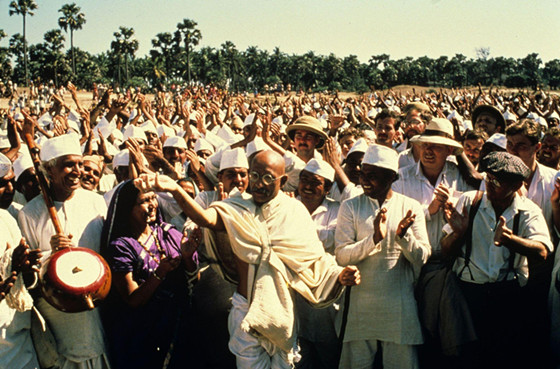
It’s shocking to think that in one of Ben Kingsley’s very first performances on screen turned him into one of the biggest performers in cinema. Ben Kingsley is here not just because he delivered an incredible performance but he became Gandhi in body, heart, mind and soul. Often I have discussed Kingsley with others and on two separate occasions people have mistaken Ben Kingsley’s face with the of Gandhi- he is stapled into the mind as such.
The film obviously follows Gandhi through his life, his escapades and experiences. We see every beautiful layer of humanity in Mahatma Gandhi through Kingsley and he makes us feel joy far more in this film than any other performance on this list.
Gandhi takes viewers through the slow, gradual and peaceful revolution that Gandhi led against British oppression and the incredulous bloodless overthrow of their rule, it reveals to viewers what Mahatma hoped to do, what he thought and just how he did it.
Ben Kingsley has been knighted for his achievements in acting although primarily this was because of his theatre contributions his performance as Gandhi gave the whole world a glimpse into the achievements of a man far too pure to be true- yet he was and Sir Ben Kingsley displays this with perfection.
4. Robert De Niro as Jake LaMotta (Raging Bull, 1980)
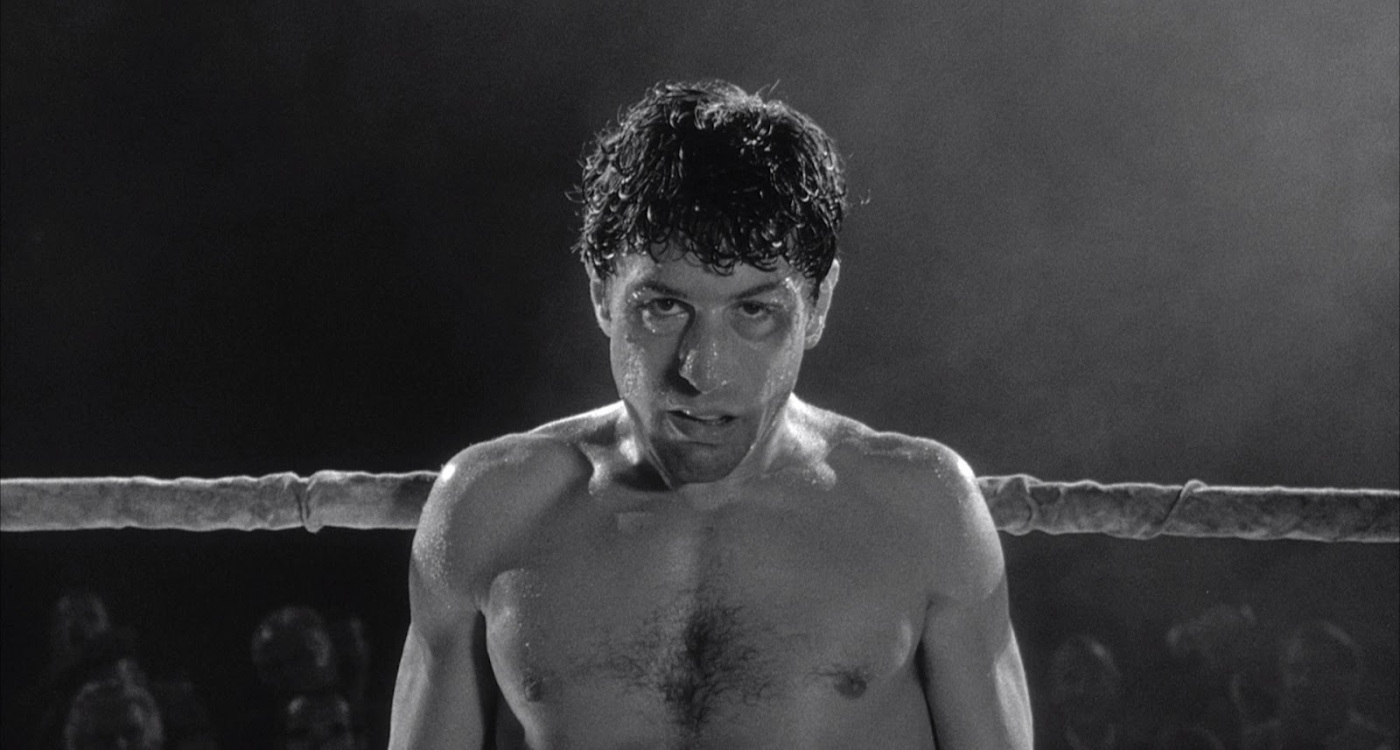
Martin Scorsese’s lack of enthusiasm to get this project off the ground is matched only by Robert De Niro’s utmost desire to play the part of Jake LaMotta for the entire world, lucky for all of us that this was the case.
Jake LaMotta is a boxer, a damn good boxer. But he is also a bitter tormented man with an extremely fiery temper. The film’s opening scene is the conclusion of a fight and presents Jake LaMotta in triumph, but the films second scene highlights the man’s poor household and marital issues- men already establish an empathy with his frustration and resentment after all he is a boxing champ to be why should he be suffering in conditions like these?
Although sharing much screen time with another charismatic and feisty Italian Joe Pesci it is Robert De Niro as Jake LaMotta in his most compelling piece. It’s rare for a character who becomes so dislikeable as LaMotta to be a face we can’t look away from but what makes this performance so good is just humanely grotesque he becomes.
The comparison between Robert De Niro’s character and Orson Welles in Citizen Kane is clear, the same rise and fall of grace and the same iconic status of both films as legend- for you know a performance is truly outstanding when compared with Citizen Kane. Robert De Niro had already created his spot as one of the most legendary actors on the earth but his turn as Jake LaMotta and the legendary method acting he put into his performance solidified him a rock in entertainment history.
3. Jack Nicholson as Randall McMurphy (One Flew Over the Cuckoo’s Nest, 1975)

Along with the two following faces on this list Jack Nicholson is considered one of the greatest actors in the history of drama- both film and theatre and in one of his earliest but most heart-warming and heart-breaking performances he created a name for himself almost unparalleled.
Randall McMurphy is a criminal, not a major criminal but a deviant for certain. He’s wicked, ill-tempered, cheeky, mischievous but also fundamentally caring. After faking mental illness to escape prison sentencing Randall is placed within a mental home full of other quirky and mentally impaired men and begins a battle of wills with the head nurse Ratched (Louise Fletcher).
The dichotomy between nurse and criminal is absolutely incredible. What Silence of the lambs follows up in the third ‘big four winners’ (director, picture, actor and actress) seems to pale in comparison to the brilliance of both Jack and Louise in every moment shared upon the screen.
Louise is not a nice woman; Randall is a selfish man but both play the asylum patients like pieces on a chess board until Randall’s inherent good nature overcomes him. The game changes from a battle of wills between two players and instead becomes the story of a man trying to save others from tyranny and Jack Nicholson draws out a perfect character development before our eyes with such perfection that there was no way this performance could be denied an entry.
Although his turn as OCD suffering and bitter old man in as good as it gets would be worth a mention it was this first truly great performance of Nicholson which showed the world not only his dedication, but his capability. In order to understand his character Nicholson spent time living with members of a mental hospital and even underwent Electroshock therapy to give a completely real performance in later progression of the story.
Nicholson both inspired viewers and depressed them as the film brings back the bitter reality of life as Randall’s noble goals end up faltering and his wills crumbles in on itself but the message of the film remains ever present.
2. Marlon Brando as Terry Malloy (On the Waterfront, 1954)
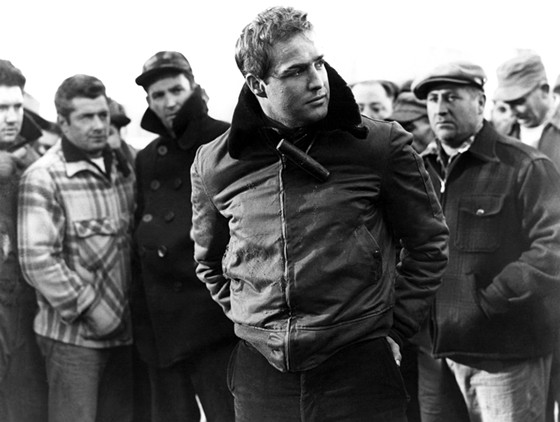
Considered the greatest actor of all time by many, his opus magnum is undoubtedly his turn Terry Malloy the boxer turned dockworker whose bitterness at his own mistake results in a desperate struggle for reclaiming lost glory. Marlon Brando’s Terry Malloy was a rising star in the boxing world until a mob boss Johnny ‘Friendly’ (Lee J. Cobb) convinces Terry to throw the fight.
On the waterfront is widely considered to be one of the greatest cinematic achievements of the 1950’s alongside films like from here to eternity and was one of the world’s first tastes of just how brilliant Marlon Brando can be at portrayed real men in perilous situations. Similar to within a streetcar named desire Brando finds himself trapped in his own personal hell however like LaMotta in Raging Bull Malloy is an arrogant man whose self-loathing for his decision holds Terry back from ever finding real contentment in his new life.
Fame was addictive to Malloy and Marlon shows how he gleamed in the lime-light in stark contrast to the grim and hostile labourer. But Malloy is unable to come to terms with his decision and instead lashes out at whom he blames for his current state and this resentment is further exacerbated when a dockworker is murdered and Terry is used in the ambush set for him.
Terry feels anger towards his family also, with his brother being Friendly’s right-hand man and a constant reminder of his own failure, Terry decides to try to dispatch Friendly through the law and chaos follows.
What prevents the film from being an unoriginal fall-from-grace noir flick is Brando’s multidimensional performance, he refuses to linger upon Malloy’s bitterness yet constantly allows his negativity to dwell in the background of all his performances, no matter what his actions be it noble, dishonest or angry Malloy still contains remnants of his overarching anger at the mob but also his own disappointment in himself.
Terry Malloy clings to his almost stardom and never releases this nostalgia, although seeking to compensate for his actions and redeem himself he does so only for his own opinion and because he knows he will never truly be as great as he once was, Malloy fails in doing so. Marlon Brando portrays a heavily layered character and is forever conscious of what he feels.
Although many would have placed his turn in the godfather in this location whilst it may have been a better film, on the waterfront was an unbeatable performance- except by this final entry.
1. Daniel Day Lewis as Daniel Plainview (There Will Be Blood)
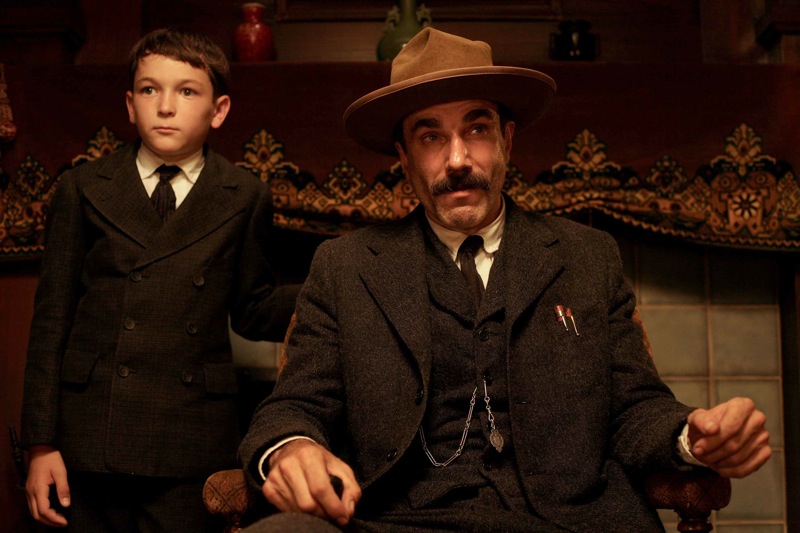
Any of Daniel Day Lewis’ academy award winning performances could be in this spot, in my left foot he delivers a heart-warming performance and in Lincoln he gives the greatest possible rendition of Abraham Lincoln to the silver screen the world will ever get but, in there will be blood we see a character so inhumanely monstrous- yet so undeniably vivid that we cannot turn away for a second and this was a performance no other actor could make believable, the role of a lifetime and Daniel Day Lewis annihilated it.
Daniel Plainview is a bastard and this is a tale that depicts a man who started manipulative and just got worse. Similar to why one cannot turn away from Raging Bull the same sentiment is multiplied tenfold for Plainview. Daniel Day Lewis has a habit for stealing every scene he is in and in almost every case this is a good thing, but another testament to his brilliance within this film.
Day Lewis gives up his presence in a very specific scene in which the audience is given just the faintest hints of the true torment within Plainview, “I’ve abandoned my boy” is at first yelled hesitantly as the conniving and self-serving priest Eli Sunday (Paul Dano) beats him before his rabid and blood thirsty audience however, as the call goes on because increasingly riddled with despair and reveals secret depths to his compassion for his ‘child’.
Daniel Plainview is toxic, an oilman and a ruthless businessman whose only motivation is more and more power through wealth. He has no morals for he is so filled with hate- both for the world around him and himself that he does not see a reason to act human, yet he embodies the darker side of human determination so well.
Avarice, greed, determination and immorality override any sense of compassion within Plainview except for one shocking touch- he takes his son back. For a minute we see layers of humanity he unlocks even for a moment- but Anderson doesn’t allow his viewers to dwell on this for he purposefully detaches us as their family moment is distant and inaudible. A fade out; Plainview’s descent into decadence continues.
He never becomes the most despicable character in cinema, layered upon layered is Daniel Plainview and Daniel Day Lewis becomes this inspired figure with such finesse it was as if he was Plainview himself.
The audience draws many things in reaction; hatred, disgust, respect, shock, excitement and anticipation but it was the inability to look away from Daniel Plainview that makes him such a perfectly constructed and presented displayed character. Many things can be associated with Daniel Plainview but not a single person could ever be eager to meet him.